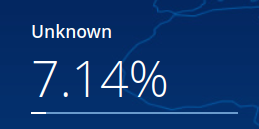

They couldn’t be bothered to show a banana for reference.
I like art, Linux, Zelda games and modding Minetest in Lua


They couldn’t be bothered to show a banana for reference.
Some kinda battle fight war conflict.


I’ll imagine that there is a rising tide of Amiga desktops then.


Sensational claims require sensational evidence.
Carl Sagan, probably



Known unknown(s) at 7.14% and rising over the Linux stat. Could these also be Linux and perhaps BSD desktops?


In the end you are still at the mercy of their shareholders and their core mission of EEE over end-user empowerment. Every thing they build is designed with lock-in and obfuscation to protect themselves.


Sadly that’s mostly true, but that may have more to do with devs lack of experience with Linux in general. Often they would have to outsource the port to Aspyr or another team.


Hmm something about this has me fantasizing about a phone sized deck. But considering Valves development of VR and this development, I think they are going to tap into the android based VR dev pool for porting titles to an official Android on Steam platform.


Oily rectal discharge anyone?
Gee the Steamdeck lets people play nearly every game they or their parents played including their 20 year old Steam library. Nintendo could make a handheld console to do the same thing, but they wont. Good luck. When the Switch came out it was something unique, but the rest of the world makes handheld consoles with far more to offer. I think they should take note of how Sony has leveraged Steam and start releasing games on other platforms. Arguably Nintendo’s greatest strength is their software and it’s their hardware that is its weakness more than ever.


Ni-MH production for EVs was effectively shutdown by Texaco and later Chevron through patent acquisitions.
https://en.m.wikipedia.org/wiki/Patent_encumbrance_of_large_automotive_NiMH_batteries
The modding is the true game


Not unlike the species of it’s creators, go figure.


I guess this means that not having to rely on dkms for hardware means being able to run the latest kernels without the hardware being disabled.


I found PROTON_LOG %command% insightful.


I hope having a transporter device is more like folding space than particle-scanning and reconstruction. The scanning and reconstruction would still be great for replacing or repairing lost or deteriorating structures. Regardless, I have a number of questions that come up as we learn more about how our brain might work.
If our brain is changed in (near) death how would we determine what was lost?
Could we even reconstruct consciousness (this could be also gradual, but what is the speed of consciousness)?
It seems more like we would have to gradually move our conscious processing from per-existing wetware to whatever replaces it (even more wetware). It should behave like our brain as much as possible, but I don’t think we could avoid being different from what we were.
Our own brain changes over time, do we think the way we did when we were 5? How different will we think far later in life (assuming our brain is at least healthy)? I think we would have to accept changes in our fundamental being (which is already very challenging). The difference is that not only could we live for longer physically, but within the pure consciousness an entire lifetime could be lived in less than a second. We experience this temporarily in dreams, or while experiencing a life threatening event such as an automobile accident or the final moments of death itself. What if that was extended over physical months, years, decades? How would we deal with such a inheritance, who would teach us how to cope and find meaning?
Would we want to live life at the speed of the physical world after such an experience?
In other news, social interaction is linked to higher risk of everything else that can happen to a person.


We have a fusion reactor in the middle of our solar system solving the spicy half of the problem already. If we are having a solar heat capture problem, how is a new source of virtually unlimited power (and heat) here going to work? How is superconductivity coming along to help mitigate this?
You can purchase the game in a web browser and use steamcmd, which (one could argue is still requiring an app) to download and install. In cases where the publisher is not invoking DRM (Larian games like BG3, DoS2, etc. for instance) once the game is downloaded you can certainly archive it and transfer it to another machine and run it there without Steam. In the end you are likely purchasing proprietary software (though again it’s not always the case on Steam) and we could say you don’t really own that either, so maybe take your complaints to the publishers or just use the power of your wallet and not buy those games and support libre games, of which there are many, another way. That said, Valve is actively making things better for users by developing and contributing to useful libre software like Proton (WINE, DXVK, etc) that can work outside of Steam.